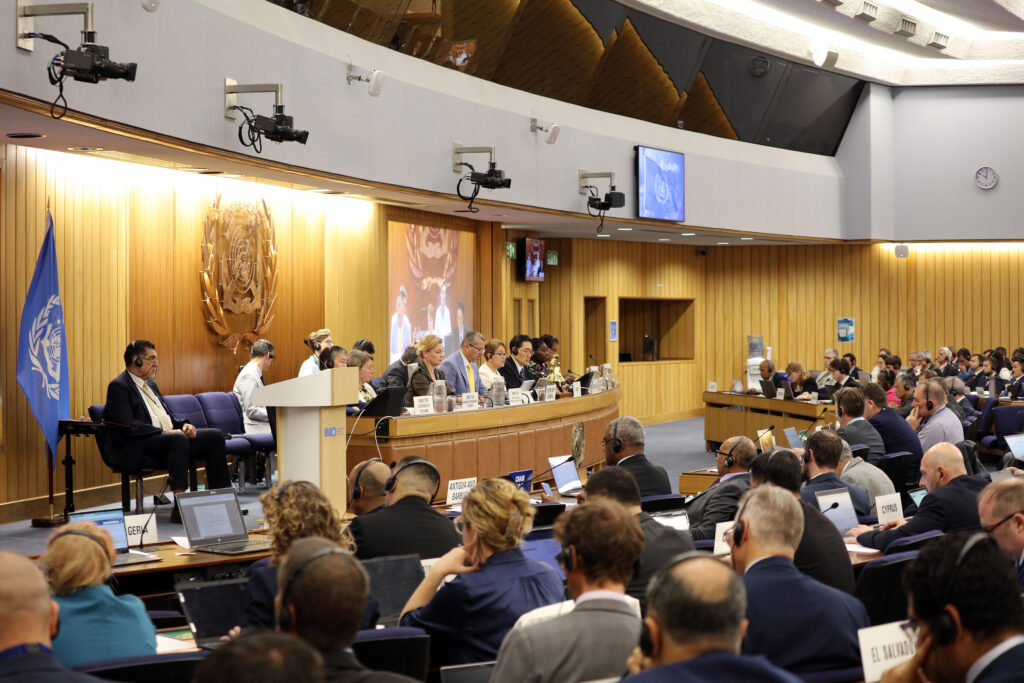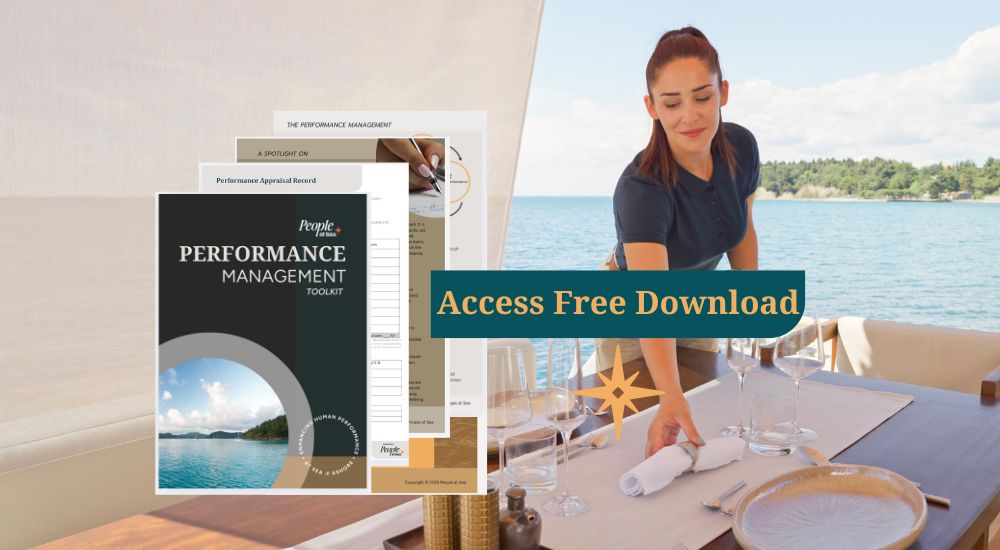In the unique world of superyachting, the lines between personal and professional often blur. You live, work, eat, and relax with the same people, day in and day out, sometimes for months at a time. Given this intensity, it’s no surprise that workplace relationships onboard are not only common, but they are, in many ways, inevitable.
While onboard relationships can be meaningful, even beautiful, they can also be deeply disruptive when mishandled. For captains and senior crew, this presents a leadership challenge: how do you support human connection while upholding safety, professionalism, and psychological wellbeing onboard?
Let’s explore why onboard relationships happen, what the risks and benefits are, and how leaders can create a culture where connection doesn’t come at the cost of crew safety or team harmony.
Why Onboard Relationships Are Inevitable
Life at sea is intense. Unlike most workplaces, yachts operate as closed ecosystems. You’re surrounded by the same people 24/7, often in tight quarters. Add to this the high-stress, high-performance nature of the work, and emotional connections form quickly.
- Proximity and Familiarity
People are more likely to form bonds with those they see regularly (known as the “mere exposure effect”). Onboard, you’re not just working side-by-side, you’re often sharing cabins, mealtimes, off-watch downtime, and shore leave.
- Limited Social Circles
Crew spend long stretches at sea or docked in remote locations with few opportunities to meet people outside the vessel. Romantic or social relationships onboard can feel like the only available option.
- Shared Lifestyle and Values
Superyacht crew often share a unique mindset: adventurous, adaptable, high-achieving. This alignment naturally builds affinity and connection.
- High-Intensity Environment
Working in a high-pressure setting accelerates emotional bonding. Whether it’s a charter season, bad weather, or stressful guest situation, shared experiences can deepen intimacy fast.
While none of these are inherently bad, they create conditions where relationships flourish quickly and sometimes recklessly. That’s where leadership comes in.
The Pros and Cons of Onboard Relationships
Let’s be clear: relationships at work aren’t automatically problematic. In fact, many are healthy, respectful, and have no negative impact on the job. But when they go wrong, especially in a live/work environment like yachting, they can go very wrong.
Potential Pros
- Shared understanding of job stress, hours, and expectations.
- Emotional support from someone who knows the lifestyle.
- Improved collaboration if the relationship is respectful and boundaries are clear.
- Motivation and morale boost when things are going well.
- Companionship, which can ease feelings of isolation or loneliness at sea.
Potential Cons
- Power imbalances, especially if one person is senior to the other.
- Perceived or actual favoritism that damages team trust.
- Loss of professional boundaries, impacting performance or accountability.
- Breakups that create tension, discomfort, or unsafe environments.
- Gossip, cliques, and division within the crew.
- Legal or ethical risks if policies aren’t followed or if consent becomes murky.
- No escape in confined quarters when things go wrong.
A healthy relationship onboard is possible, but it must be navigated with maturity, discretion, and strong boundaries.
What Can Captains and Leaders Do?
Leaders set the tone for the culture onboard. Captains in particular have a responsibility to create an environment where relationships (romantic or otherwise) do not compromise psychological safety, professionalism, or team cohesion.
Here are seven actionable strategies for captains:
- Set Clear Expectations Early
During onboarding, handovers, or pre-season briefings, captains should speak openly (not awkwardly) about the reality of onboard relationships. Set the tone: relationships happen, and that’s okay as long as they are respectful, discreet, and don’t interfere with work or crew dynamics.
Normalize the conversation, not the gossip.
- Have a Clear, Written Policy
Yachts should have a simple, non-judgmental policy on workplace relationships that includes:
- Guidelines for disclosing relationships (especially those involving power dynamics).
- Expectations around professionalism, discretion, and mutual respect.
- Steps for addressing concerns or conflicts if they arise.
This isn’t about policing private lives. It’s about protecting the team from unnecessary disruption and risk.
- Foster a Culture of Trust, Not Gossip
Gossip is toxic to crew morale. As a captain, model discretion in how you speak about others. Shut down rumor mills quickly and remind crew that privacy and professionalism are core to a respectful work environment.
Confidentiality builds trust. Gossip breaks it.
- Provide Tools for Emotional Intelligence
Most crew don’t get formal training in emotional regulation, communication, or boundaries, yet these are crucial skills in confined environments.
Consider offering:
- Conflict resolution training.
- Workshops on emotional self-awareness.
- Crew wellbeing sessions that address interpersonal dynamics.
Even a one-hour session during crew orientation can set a powerful tone.
- Know the Red Flags and Intervene Early
Be alert to signs that a relationship is affecting the wider team:
- One person is becoming isolated.
- There’s visible tension, favoritism, or withdrawal.
- Others express discomfort or concern.
Don’t wait for drama to explode. Step in early with empathy and a plan.
- Offer Mediation or External Support
If a relationship turns sour and creates friction onboard, captains should offer a professional, neutral space for resolution. This could involve:
- External HR or crew support advisors.
- Temporary role or cabin changes.
- Facilitated conversations between parties.
The goal isn’t to punish but to protect the wider crew culture and ensure everyone feels safe.
- Prioritise Psychological Safety
Remind your team that what matters most is how people treat each other.
A relationship onboard is not the problem. . . disrespect, secrecy, or boundary-crossing is.
Make it clear that you expect emotional maturity and accountability from everyone, regardless of who they’re dating.
When Relationships Go Wrong: Leadership Matters Most
We’ve all heard the horror stories:
- A married captain dating a junior stew and favoring them.
- A breakup that turns into a mental health crisis at sea.
- A clique forming around a couple that excludes and isolates others.
These are not just unfortunate stories they’re preventable outcomes of poor leadership, unclear boundaries, or cultures that fail to address the emotional reality of life at sea.
As a captain, you can’t control people’s feelings. But you can:
- Set expectations.
- Encourage self-awareness.
- Address concerns early.
- Hold people accountable for their behavior.
Final Thoughts: Connection Doesn’t Have to Cost Culture
Human connection is natural. It can even be a source of strength on board. But for captains and leaders, the challenge is clear: how do we hold space for relationships without compromising the safety, integrity, or wellbeing of the wider team?
It starts with clarity, maturity, and compassion.
At People at Sea, we believe the best teams aren’t just technically excellent. They are emotionally intelligent, culturally safe, and led by people who understand the human dynamics that shape life onboard.
So the next time two crew fall for each other? Don’t panic. Lead.
Looking for help building a healthy, respectful culture onboard?
Reach out to People at Sea for tailored leadership support, crew training, and wellbeing resources.



